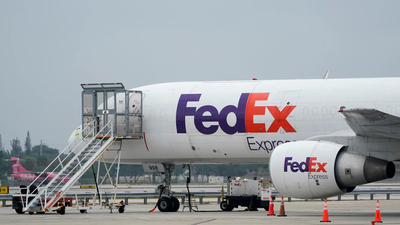Key Takeaways
- FAA imposes 10% flight cuts at 40 major airports due to controller shortages
- UPS and FedEx ground MD-11 fleets, removing significant cargo capacity
- Shoppers may face up to 2-day delivery delays during peak holiday season
- Industry experts urge early ordering to avoid disruptions
The US air cargo industry faces a perfect storm as FAA flight capacity reductions and cargo jet groundings threaten holiday deliveries. With Thanksgiving and Christmas shipping season approaching, logistics networks are bracing for significant strain.
Double Blow to Air Cargo Capacity
The Federal Aviation Administration has ordered a 10% reduction in domestic flight operations across 40 major airports, citing air traffic controller shortages from the prolonged government shutdown. This affects key distribution hubs including FedEx’s Memphis and Indianapolis bases and UPS’s Worldport facility in Louisville.
Compounding the problem, both shipping giants have grounded their McDonnell Douglas MD-11 fleets “out of an abundance of caution,” removing roughly 9% of UPS’s capacity and 4% of FedEx’s fleet.
Expert Warnings and Consumer Impact
“This is such a stressful time for both companies,” said Patrick Penfield, supply-chain management professor at Syracuse University. “You’ve got a surge in demand, and then you just lost some of your capacity. They’re already scrambling, and now they’re going to scramble even more.”
Penfield warned that shoppers could face delivery delays of up to two days in mid-December and urged consumers to order early. While most air freight is international and unaffected by the FAA cuts, domestic passenger flights carry about 35% of global trade by value.
Industry Response and Adaptation
FedEx said it had made “operational modifications” to keep shipments moving “safely and swiftly,” while UPS assured customers that its network remains “safe, resilient and reliable.” Both carriers noted most flights operate outside restricted hours, minimizing overnight delivery impact.
Mike Short, president of global freight forwarder C.H. Robinson, warned the reduction could tighten domestic air capacity and extend transit times. “Trucks and expedited ground networks can absorb some displaced volume, but not without challenges,” he said.
Long-term Concerns and Resilience
Brandon Fried, executive director of the Airforwarders Association, emphasized that “air cargo depends on every part of the aviation ecosystem working in sync. When capacity is cut and federal employees are stretched thin, the supply chain slows — and the longer this shutdown continues, the worse it will get.”
Despite current challenges, logistics experts note the sector has become more resilient after pandemic shocks. “Airlines have become very good at consolidating loads and rerouting via secondary hubs,” said Eytan Buchman of Freightos. “In the near term, space may feel tighter, but this isn’t a one-to-one loss in capacity.”
Industry watchers currently expect limited delays, but warn that if the government shutdown extends into December, America’s holiday deliveries could face their biggest stress test in years.




